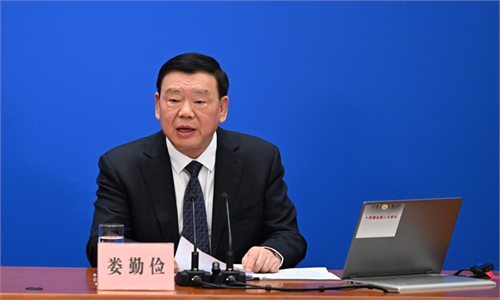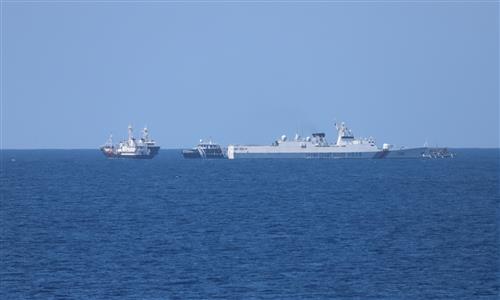Dangerous brinkmanship or back to dialogue: Peace and stability of the South China Sea is at the critical point
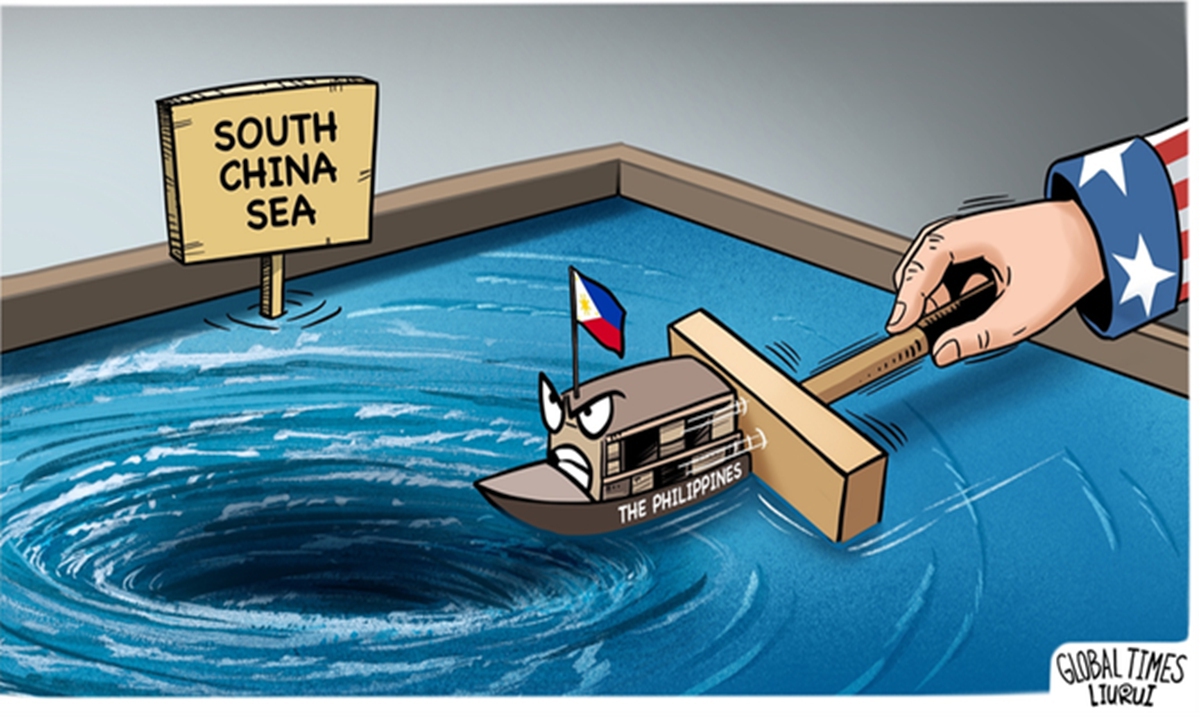
Illustration: Liu Rui/GT
The current tension in the South China Sea is caused by the Philippines unilaterally changing the status quo and rushing to build permanent facilities to serve the illegitimate interests of some politicians. In total disregard of basic historical facts and international consensus, the Philippines has spread a large amount of false information and taken a series of highly unprofessional and irrational decisions and actions, which is an extremely dangerous brinkmanship of conflict and war. Only by returning to the negotiating table can the stakeholders avoid a rapid escalation of the conflict and an uncontrolled deterioration of the situation, and restore peace, stability, development, prosperity and sustainable security to the South China Sea region and all littoral states in the South China Sea.Historical facts are crystal clear: The Philippines' territory has nothing to do with China's Nanhai Zhudao. China's islands in the South China Sea have never been within the territory of the Philippines, and any illegal territorial claim is a malicious challenge to the basic status quo of international law and international order. The territory of the Philippines is defined by a series of international treaties, including the 1898 Treaty of Peace between the United States of America and the Kingdom of Spain (the Treaty of Paris), the 1900 Treaty between the United States of America and the Kingdom of Spain for Cession of Outlying Islands of the Philippines (the Treaty of Washington), and the 1930 Convention between His Majesty in Respect of the United Kingdom and the President of the United States regarding the Boundary between the State of North Borneo and the Philippine Archipelago.
It is the Philippines' deliberate militarization of the South China Sea that has changed the status quo on Ren'ai Jiao and the surrounding waters. Originally, Ren'ai Jiao was uninhabited. The Philippines attempted to entrench its illegal occupation of some islands and reefs of China's Nansha Qundao and in the 1970s it started to build military facilities on some islands and reefs it had invaded and illegally occupied. On May 9, 1999, the Philippines sent BRP Sierra Madre (LT-57), a military vessel, to intrude into China's Ren'ai Jiao and illegally ran it aground on the pretext of "technical difficulties." Many times the Philippines promised to tow away the vessel. This has been confirmed by informed sources in the Philippines and international researchers on the South China Sea issue (Figure 1, 2). However, in the past 25 years, Philippine politicians have conveniently forgotten about this commitment.
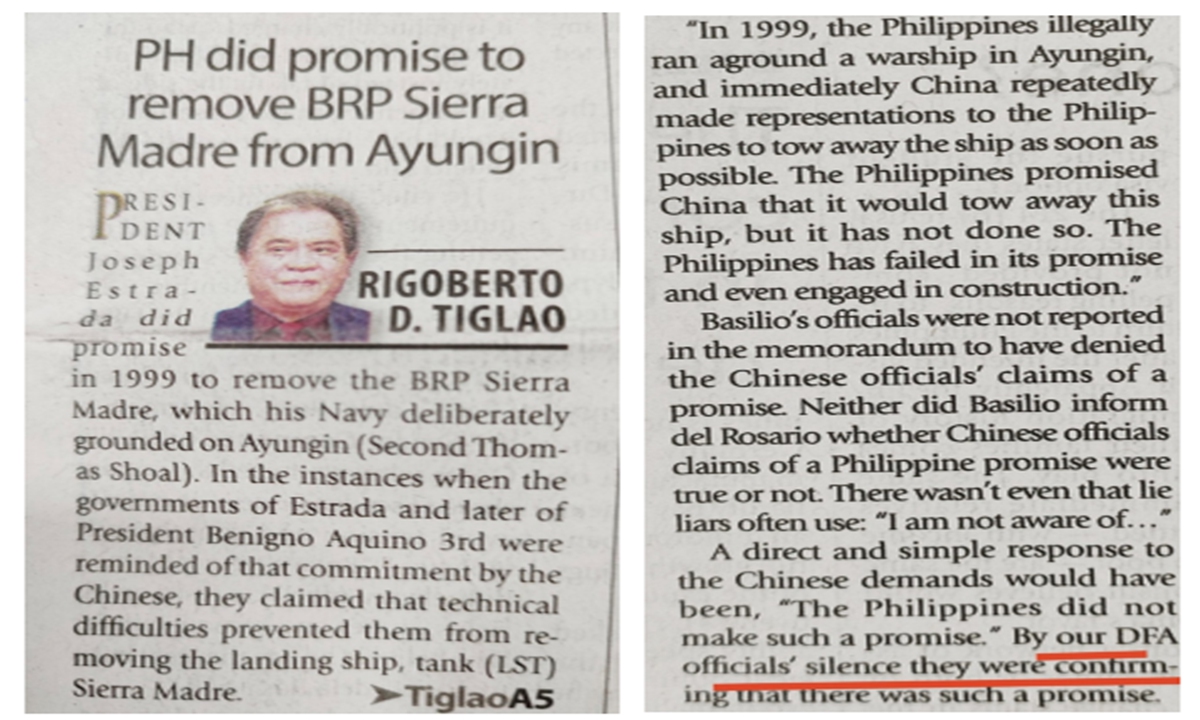
Figure 1. The spokesman for the former president of the Philippines confirmed the Philippines' commitment to tow away the vessel.
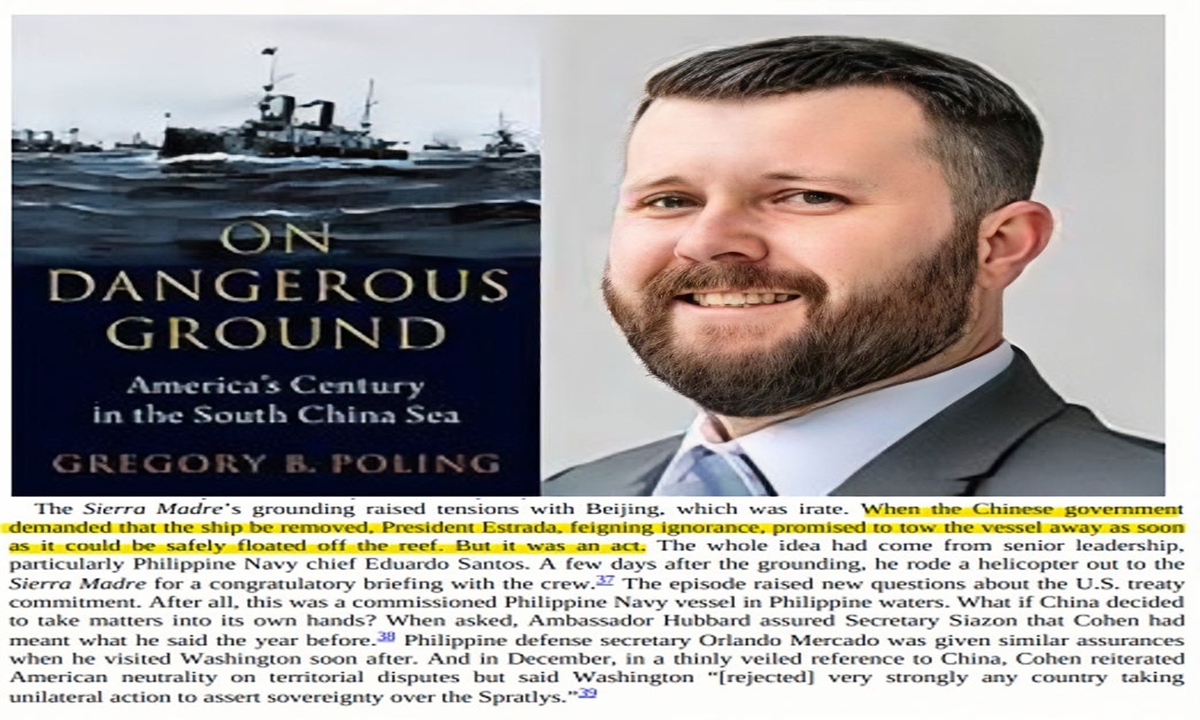
Figure 2. American researcher Gregory B. Poling confirmed the Philippine's commitment to tow away the vessel in his book.
The Philippines' illegal claims and malicious dissemination of false information about its infringement on China's territorial sovereignty over the Nanhai Zhudao have challenged the basic international consensus as well as the status quo and order of the international community. The Philippines has made several so-called claims in recent years. For example, the Philippines claimed that it has occupied Nansha Qundao because of "contiguity or proximity" and "some islands and reefs of Nansha Qundao are located in the exclusive economic zone and continental shelf of the Philippines." Such claims are disinformation, aimed at gaining international sympathy. "Contiguity or proximity" has never been a basis under international law for acquiring territory. The British island of Jersey is only 20 nautical miles from France, Guam is thousands of miles away from the US mainland, American Samoa is only 50 kilometers from Samoa, and Australia's Christmas Island is 2,600 kilometers from the mainland but close to the Indonesian coast. Following the logic of the Philippines, should the US, the UK and Australia withdraw from their respective territories? Also, the exclusive economic zone can never claim territorial sovereignty, and no country can deny another country's territorial sovereignty with maritime rights. At the same time, exclusive economic zone and continental shelf have never been the principle for a state to extend its maritime jurisdiction to an area under the sovereignty of another, nor can a state use such jurisdiction as an excuse to deny another state's sovereignty or even to infringe upon its territory. On the contrary, China's territorial sovereignty over the Nansha Qundao since ancient times is the basis and premise of its maritime rights. Do Melilla and Ceuta, which cross the Strait of Gibraltar in the northern corner of Africa and border directly with Moroccan territory, belong to Morocco, not Spain? With such lies and deception, which go against common sense, basic principles of international law, basic facts and the status quo, the Philippines misleads the international community, deceives its own people, and endangers regional peace, stability, development, prosperity and sustainable security.
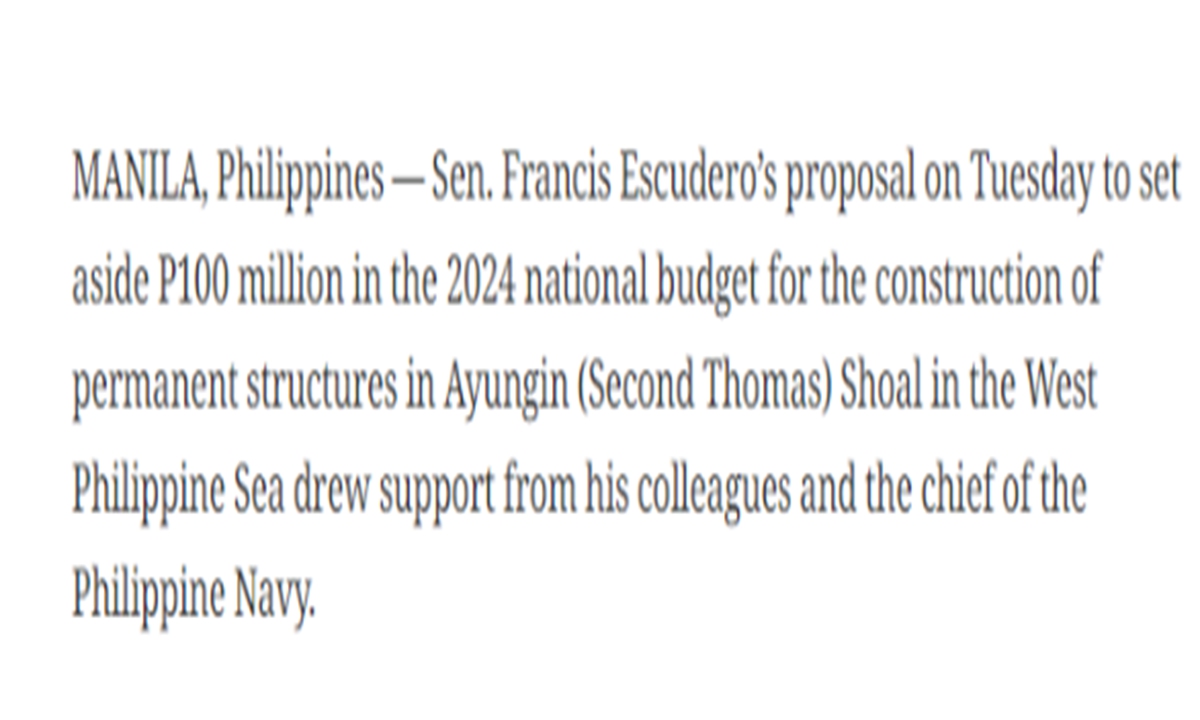
Figure 3. A series of reports in the Philippines on the deliberate construction of permanent facilities on Ren'ai Jiao by the Philippine government, Congress, senior officials and senators
Recently, the Philippines has significantly escalated its provocative actions in the Ren'ai Jiao and other waters in the South China Sea. It has also made a series of very unprofessional, irrational and immature decisions and actions, as well as adopting a very typical brinkmanship of conflict and war. Since 2023, the Philippine side has been determined to challenge China's proper arrangements for humanitarian supplies to ships on the Ren'ai Jiao and is reckless in its efforts to reinforce ships, build permanent facilities and build "military outposts." The Philippine National Security Council made clear in the 2024 budget submitted to Congress that it would use 100 million Philippine pesos to "construct permanent facilities" on Ren'ai Jiao (Figure 3). Since October 2023, the Philippine side has taken the initiative further and continued to significantly increase the frequency and scale of transportation and construction, in an attempt to complete the reinforcement and permanent construction of facilities for warships on the beach in a short period of time. Since 2024, the Philippines has maliciously broken its commitments and mutual agreements, and broken the status quo. It has increased the use of government vessels, dispatched coast guard and other law enforcement vessels to Huangyan Dao and Ren'ai Jiao respectively, and systematically mobilized a large number of maritime militia vessels to stay for a long time and make provocations.Furthermore, it has sent senior officials to board the grounded vessel in disguise and unsafely and unprofessionally operated government vessels to dangerously collide with Chinese law-enforcement vessels. Escalating the confrontation to the extremely dangerous level of "paramilitary operations" with a series of complex and spillover irresponsible actions is an extremely irresponsible escalation of the crisis, moving it closer to the brink of conflict and war. Mankind has experienced too many tragic cases since the Cold War. Some politicians lacking strategic vision and political literacy are bent on stirring up strained regional nerves for their own selfish interests, creating extremely dangerous potential major crises. Eventually, they will definitely be abandoned by the people and humiliated in the long river of history.
In solving disputes, human beings have sufficient modern practice and rich successful experience. The best way forward is to sit down and carry out negotiations in a spirit of equality and mutual understanding. Confrontation and escalation of provocation have never been and will never be in the toolbox of options for civilized countries and mature politicians. Since its founding, the People's Republic of China has signed boundary treaties with 12 of its 14 land neighbors through bilateral negotiations and consultations in a spirit of equality and mutual understanding. So far, about 90 percent of China's land boundaries have been delimited and demarcated. There is no doubt that the Philippine side should be very clear that the Chinese people and the Chinese government can talk about any differences, including the current dispute, and will honor its word. Only through negotiations can the stakeholders truly bring peace and stability to the region, development and prosperity to the people, and sustainable security to all neighboring countries.
The author is deputy director of the Institute of Maritime Strategy Studies at China Institutes of Contemporary International Relations. opinion@globaltimes.com.cn
